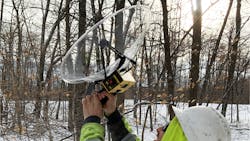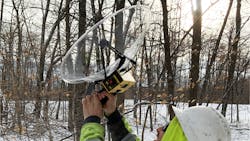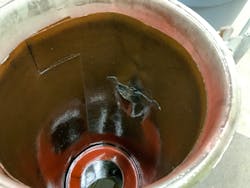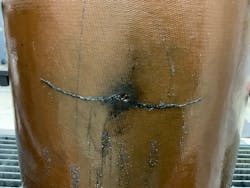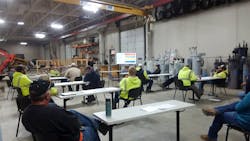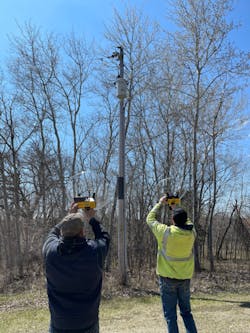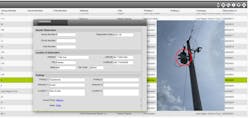Next-Level Reliability Meets Post-COVID-19 Grid Demands
Since operations began in 1937, Lake Region Electric Cooperative (LREC) has strived to bring the best electricity available to its 28,000 members. Located in rural west central Minnesota, LREC has 30 substations, 4400 miles (7081 km) of overhead distribution and 1200 miles (1931 km) of underground distribution spanning a vast territory with more than 1000 lakes and various terrains. To serve its members, located in all 50 states, Lake Region Electric Cooperative has been strategic about its technological advancements.
Over the last 15 years, the co-op has reduced the number of outages on its system from more than 1200 annually to approximately 800, cutting the total outage time in half. After implementing an aggressive vegetation management program, completing annual visual and infrared (IR) inspections, and replacing more than 6000 vulnerable porcelain cutouts four years ago, in the last five years LREC had reached a standstill and the significant gains realized in the first five years from these integral efforts had leveled off. To combat this stagnation in outage-rate improvements, the coop went into its 2020 strategic planning meeting with a different mindset. LREC had to think differently, and it would require the involvement of nearly everyone in its organization to achieve next-level reliability.
All Hands On Deck
With the onset of COVID-19, changing its approach became more than an innovative utility management strategy for LREC; it became a necessity. This was seen when the electric load significantly shifted toward residential members, with school and business suddenly taking place in the home. If power outages became prevalent in residential neighborhoods, they would cut off business meetings and prevent children from attending school.
When service interruptions occurred, LREC could feel the sense of urgency from its members, showcasing how reliability and internet connectivity had become even more critical. While LREC had cut outage times in half over the years, even its best run-to-failure efforts would no longer be good enough. In 2020, the new standard had to be preventing outages before they occur.
Typically, when LREC conducts strategic planning, it involves management and engineering teams. Knowing 2020 was not a typical year, LREC took an all-hands-on-deck approach by involving almost everyone in its organization. The coop especially leaned on field insights from its lineworkers and more direct participation from board members. The objective for the strategic plan was to have everyone in the organization own the challenge and participate in finding new solutions.
The Ground Game
To begin innovation strategies, LREC started by tapping into its outage management and geographic information systems to gain insights into the equipment network. From these data-driven assessments, LREC identified 10 sectors where many of the service interruptions and member calls were occurring. It was estimated these areas made up approximately 7.5% of the coop’s membership and experienced more than five outages per year.
LREC created an action plan to solve the problems being experienced in the 10 sectors referred to above. In football, teams that establish a good ground game open all sorts of possibilities for the rest of the offense. LREC felt the same would be true for its issues. Putting this idea into motion, linemen were assigned to teams of two to observe and investigate problems that were occurring. These teams of lineworkers essentially owned their specific problem areas and were responsible for digging deeper to find root causes and potential solutions to the problems they were seeing. The co-op provided dedicated time in the lineworker’s work schedules for this recon and proactive reliability work and let them know they would be rewarded for their efforts.
The lineworker’s observations on the ground were conducted over a three-week period. During that time, LREC had five sharing and ideation sessions that involved the lineworkers, engineers and management. Meetings were held in the warehouse, which was the only space large enough to maintain social-distancing requirements. At first, the lineworker teams were a little reserved in sharing, but — as all employees collectively engaged with questions and discussions — it became clear everyone was part of the same team, trying to accomplish the same goals. The process became dynamic, with each session uncovering new insights about what the lineworker teams were seeing.
Problem Ownership
After the team meetings and observation phase of the project, LREC management and engineering crews evaluated the best ideas for implementation. Some of the ideas included enhanced sectionalizing of main feeders with overcurrent relays and tap fusing as well as several line conversions from private rights-of-way (ROW) overhead to public ROW underground. The first few action programs implemented were projected to be about a US$280,000 investment into strategic system improvements.
Throughout the meetings, lineworker observation and problem-solving efforts were recognized publicly and financially. Each member of the teams who submitted selected ideas received a $100 cash reward. While some teams received several rewards and a few teams did not receive a reward, the process awakened lineworker in a new way. They became more aware of how important they were to the utility’s ground game. Additionally, implementation of approved ideas opened another avenue for financial cash rewards for line crews.
LREC is not only leveraging the lineworker’s problem-solving skills but also creating a new esprit de corps within its organization, even a little healthy competition, too. It is believed the incentivizing and coming together of the whole organization has imparted a new level of problem ownership and creativity on the job. This process, the meetings and the incentives have not stopped and will continue into the foreseeable future.
The Invisible Problems
To further its strategic plan to create a stronger network, LREC needed to increase its preventive maintenance efforts. The co-op’s vegetation management program has been a steady part of the preventive maintenance effort for several years, aiding in maintaining reliability numbers. Nevertheless, approximately 33% of LREC’s outages were caused by failing equipment. To level up, LREC had to aggressively target its overhead equipment. While the lineworker observations project was a good start, the vast majority, about 80% to 90%, of equipment deterioration had no visual indicator. While use of IR assessments does make an impact, the coop wanted more in terms of technology.
In searching out new technological advancements for coops, the LREC engineering team had been in discussions with Exacter Inc., a predictive technology company, for several months. Exacter caught the coop’s attention because it can identify conditions-based outage threats on the overhead system. Its findings would enable LREC to replace failing equipment before an outage occurs, allowing the utility to meet its new reliability mandate of preventing outages. In the fall of 2020, LREC contracted Exacter for a 150-mile (241-km) pilot project, which included 10 substations, so LREC could experience the technology firsthand.
Findings from the project proved valid and were successful. Exacter identified 32 components emitting partial-discharge failure signatures in the form of equipment current leakage, arcing and tracking — early indicators of equipment deterioration that leads to eventual failure. The Exacter reports provided the GPS coordinates, pole number, and even a photograph and video confirmation of the deteriorated equipment. Shortly after the assessment, teams were sent to these sites to replace the deteriorating equipment.
As part of the pilot project, Exacter assessed 10 substations and found five partial discharge emissions, with one of them being a regulator. When the regulator was opened, it was clear a failure was imminent. Had a failure occurred, it would have taken out the entire substation and impacted thousands of members during a cold Minnesota winter. LREC was able to avoid an outage altogether with the Exacter technology.
Once the pilot project concluded and crews were able to investigate the data received, LREC made the strategic decision to keep Exacter’s predictive technology as a permanent tool in its reliability toolbox. The most cost-effective means to permanently acquire this technology was through a capital purchase of the sensor technology, enabling the co-op to use its lineworker teams to perform assessments and locate deteriorated equipment. As part of purchasing the technology platform, Exacter provided two years of field support and training for staff on setting up circuit routes, collecting data, and certification for best practices on use of field-locating methods and equipment.
Once the first rotation on the entire system is completed, LREC plans to assess about one-third of its overhead equipment every year. LREC will be doing all the field work with the Exacter and acoustic equipment, and Exacter will be processing the data, setting up routes and providing unique circuit targeting analytics based on the outage management system data.
Next-Level Reliability
Throughout LREC’s strategic planning and technology pursuit, the co-op received positivity and encouragement from its board. Every rural coop board is different, but LREC is fortunate to have a board of directors who cares deeply about their members and the communities they serve. They take pride in being part of an electric coop that strives to become better each year.
Throughout the entire improvement process, LREC has been transparent about strategic planning, its COVID-19 response and how to achieve next-level reliability. Board members have been responsive and expressed a desire to be involved in any way that could help. The board saw the vision of how it would catalyze a change in culture and make LREC’s organization even more forward leaning. This support was on full display when board members came into the field to see Exacter technology locating outage threats.
There is no question COVID-19 has changed the electric reliability game. The post-COVID-19 world will have more business and education taking place online in the home. LREC’s response for managing a post-COVID-19 grid has been to have more people across its organization proactively involved in seeking improvement. LREC has never had more data analytics ability to target and reduce outages, analyze the sources of customer minutes of interruption (CMI) and respond to member complaint calls. In addition, LREC now has better technology for preventing outages and troubleshooting issues that, in the past, could not be seen.
Each year, LREC will continue to improve. While it is unknown whether LREC can progress by another 50% of outage improvement, the tools and the data needed are now in place to fully assess and maintain the grid for obtainable improvement in the years to come.
Tim Thompson is CEO of Lake Region Electric Cooperative in Pelican Rapids, Minnesota. Since taking the leadership role at LREC in 2007, his focus has been to achieve continuous reliability improvement. He sees improved service in the form of reduced outages and outage time as a return on investment to LREC members and improved safety for lineworkers by driving outages out of the system. His member-motivated, future-focused approach has been creating a culture of deliberate innovation by exploring new technologies every year during strategic planning and leveraging the skills of LREC’s management, engineering and field teams to develop new system and member service improvement solutions. He holds a finance degree from Iowa State University and an MBA degree from Jacksonville State University.
For More Information:
Exacter | www.exacterinc.com
About the Author
Tim Thompson
Tim Thompson is CEO of Lake Region Electric Cooperative (LREC) in Pelican Rapids, Minnesota. Since taking the leadership role at LREC in 2007, his focus has been to achieve continuous reliability improvement. He sees improved service in the form of reduced outages and outage time as a return on investment to his members and improved safety for lineworkers by driving outages out of the system. His member-motivated, future-focused approach has been creating a culture of deliberate innovation by exploring new technologies every year during strategic planning and leveraging the skills of his management, engineering and field teams to develop new system and member service improvement solutions. He holds a finance degree from Iowa State University and an MBA degree from Jacksonville State University.
